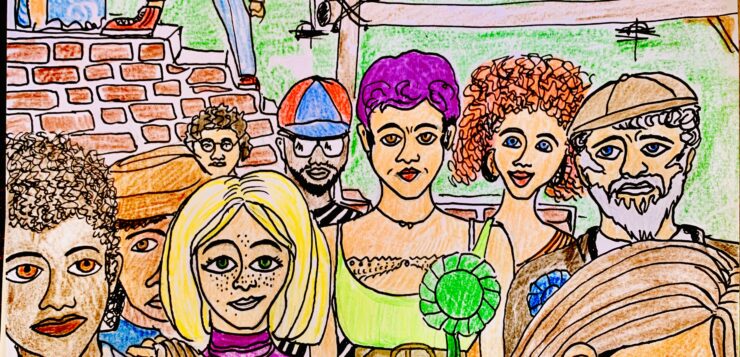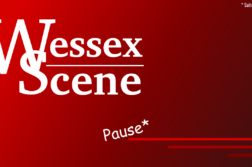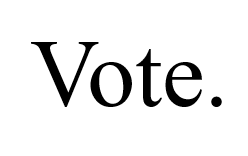In the aftermath of the 2019 General Election, the issue of class dealignment has been put back on the table. With the loss of much of Labour’s ‘red wall’, the historically red constituencies in the Midlands and North of England, combined with the high proportion of the metropolitan middle-class rallying in favour of a shift to the left, it certainly looks as though class and party endorsement have never been more confused. While this may seem compelling, we might be framing it wrong. Have we moved into a new era of single-issue politics? Have Brexit and social convictions usurped traditional economic divisions or has the fundamental nature of the classes changed?
Let’s start by looking at Labour. It’s been no secret that for the last few years at least, running Labour has been an awkward balancing act between satisfying the traditional core of working-class, urban, Northern voters and the more recent addition of a progressive, middle-class cohort. This divide has been further stretched by Brexit, an issue the two groups voted oppositely on. The red wall ranged from 60.3% to 71.4% in favour of Brexit. Meanwhile, Momentum, the flagship pressure group of the progressive side of Labour- campaigned avidly against it. This exposes another key difference between the two. There is still a strong nationalist sentiment within the traditional section of the Labour party, much like there was in the early to the mid-20th century when the strongholds were forged. On the other hand, there is advocacy for cosmopolitanism and a ‘global citizen’ attitude at the other end of Labour.
So, maybe despite the party going back to the left, it is on social issues that the traditional base feels turfed out.
On the other side of Parliament is the very inviting endorsement of Brexit to those who feel ignored by Labour. Despite the inner turmoil of the Tories, the party’s strong stance on this issue is thought by many to be what swung so many working-class voters to their side. But was it simply just an issue of ruling out a second referendum? No. The Conservatives have framed the debate as between the people against the chattering ‘metropolitan elite’, somehow managing to make people overlook the presence of Etonians and Harrovians in their own party. This is interesting because of how differently the Tories have worked to convince the working class compared to recent history. While an appeal to aspirational voters has been common since Thatcher, the Conservatives may now be winning due to two identities. First, of solidarity with the word of the people, a fair enough argument given their sticking to the vote, whatever the motivations. Second, a more traditional and patriotic appearance without trying to appear ‘woke’ and cosmopolitan like much of the Labour party may have helped pull voters across.

So, what does this mean for class and its alignment with party affiliation? Looking at economics, despite the Conservatives being dragged a bit over to the left, it is quite clear that to shift such a huge swathe of the Labour core is a historic change. However, on the social side it can be argued that the people have not moved but the parties, and to a greater extent Labour, have shifted instead. While class-based inequality is still, of course, of the utmost importance to the Labour party, a shift to a more intersectional view of inequality may have left people feeling alienated. Moreover, the reluctance of much of the Labour party to accept Brexit looks at best opinionated and at worst paternalist. While the Tories may only be running with public opinion for the sake of it, the votes they won were from people who likely felt ignored by Labour. Class dealignment, therefore, may be on the party of the parties, while the people stay aligned with their class in general on social issues at least.
Taking another angle, might there be a change in voting behaviour due to a fundamental change in the nature of the classes? What once was made up of miners and factory workers is now a group characterised by call centre workers and other ‘unskilled’ and ‘semiskilled’ service industry workers. The general standard of living has improved since class divisions were first defined. There are historic levels of first-generation university students. One could argue, at a stretch, that class divisions are fading. But none of this gradual change explains the recent shift of the red wall.
Maybe the real fundamental change is in the nature of politics today. Rather than dividing across class lines and economic stance, increasingly we are seeing a single issue take hold of the discourse. In the most recent election, this was Brexit and Corbyn tried to take debate elsewhere. This may well have been the source of his failure. In America, it has been general anger and at least perceived failure of the state that Trump has managed to harness. With countless other examples around the world, people don’t seem to rally together around class anymore but around a single issue or sentiment.
Maybe today’s turmoil will all blow over and I will have just been projecting. There’s nothing to say the red wall won’t return and remain for another century but there’s also plenty to suggest we may be entering a new age of politics. A somewhat oxymoronic distrust of the ‘political class’ may be the power that is harnessed by successful leaders or it may be another public feeling but it’s looking increasingly like class won’t be it.




